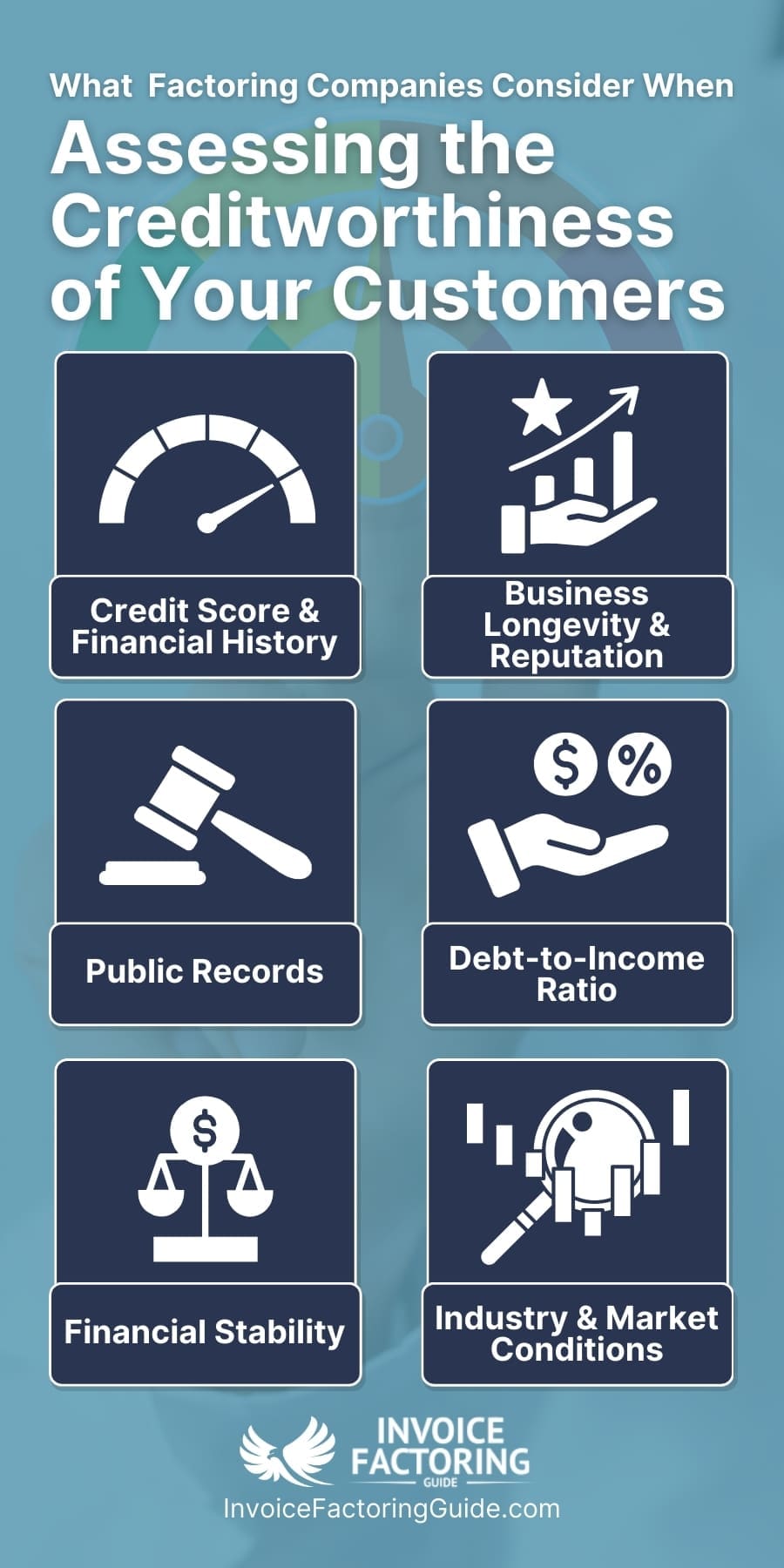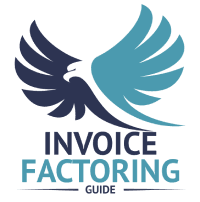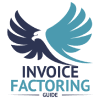
Did you know that more than half of all B2B payments are paid late and nearly one in ten outstanding invoices becomes bad debt, per Atradius? Each time you invoice a client, you extend credit, and with that extension, your business assumes some risk. Credit vetting helps minimize the risk by allowing you to make informed decisions about which customers you extend credit to and how much you extend. Despite the benefits, most small businesses don’t take this step independently. However, if you decide to work with a factoring company to accelerate your receivables, it’s a service they’ll provide. We’ll walk you through how they do it, what they’re looking for, and how to keep your customer relationships strong throughout the process below.
Why Customer Credit Matters in Factoring
One of the most significant benefits of factoring is that it’s much easier to get approved compared to traditional loans and other forms of financing. This is because the factoring company is purchasing your unpaid B2B receivables or invoices. They’re advancing you money you’ve already earned but would otherwise wait weeks or months to receive.
Your customer is the one who clears the balance when they pay their invoice. There’s no debt for your business to pay, so your credit isn’t a major concern. However, this naturally means that the creditworthiness of your customers will come into play because they’re the ones who owe the debt.
Vetting is the process in which factoring companies perform a credit assessment on your customers to:
- Determine Approval: Whether or not you can submit invoices owed by a client for factoring is contingent on their creditworthiness.
- Establish Limits: Your factoring company will establish limits as to how much trade credit you can extend to customers without exposing your business or the factor to unnecessary risk.
The Process of Vetting Customers’ Credit
The process of vetting a customer’s credit is meticulous and critical for ensuring that the financial risk taken on by the factoring company is minimized. This evaluation safeguards the factoring company and indirectly supports your business by enabling you to have more consistent cash flow.
Initial Steps in Credit Evaluation
In a traditional factoring agreement, your factoring company works with you and your customers to handle the credit vetting process. Although each factoring company is different, vetting involves some variant of the steps outlined below most of the time.
Application Submission by Your Business
The first step is for you to submit an application to the factoring company. This application usually includes details about your business and customers, including invoices you wish to factor.
Review of Your Business
Although the focus here is on your customer’s creditworthiness, the factoring company will also evaluate your business to ensure it is legitimate and has a history of transactions with the customers you’re submitting.
Collection of Customer Details
The factoring company will collect detailed information about the customers whose invoices are being factored. This often involves gathering names, transaction histories, and amounts owed.
Credit Report Analysis
The factoring company will then procure credit reports for each customer from credit bureaus or specialized business credit reporting agencies. This report provides a snapshot of the customer’s credit history, including any defaults or late payments.
Criteria Used in Assessing Creditworthiness

The factoring company will use lots of data points to help get a clearer picture of the risk involved in purchasing your invoices.
Credit Score and Financial History
One of the primary indicators of creditworthiness is the customer’s credit score, which is derived from their financial history, including payment of loans, credit cards, and other debts.
Payment History with Your Business
How reliably the customer has paid your business in the past is a critical factor. Regular, timely payments are a positive sign, whereas late payments raise concerns.
Debt-to-Income Ratio
This measures the customer’s monthly debt payments against their gross monthly income, indicating how much of their income is already committed to debt repayment.
Current Financial Stability
Analysis of the customer’s current financial statements helps in understanding their ability to fulfill financial obligations. This includes looking at assets, liabilities, and cash flow.
Industry and Market Conditions
The economic health of the industry in which your customer operates can affect their creditworthiness. Factors consider whether the industry is growing, stable, or in decline, as well as any regulatory impacts.
Public Records
Checks for any legal issues that might impact the customer’s financial stability, such as judgments, liens, or bankruptcies.
Business Longevity and Reputation
A longer-established business with a solid reputation may be deemed more creditworthy than a newer, less-tested entity.
Tailoring Credit Limits in Factoring Agreements
Tailoring credit limits in factoring agreements is a critical aspect of creating a financial arrangement that benefits the factoring company and supports your business needs. The process of setting these limits is intricately linked to the outcomes of credit vetting. It involves a careful assessment of the risk associated with financing the invoices of different customers.
Assessing Credit Limits Based on Vetting Outcomes
As mentioned, your factoring company will keep you in the loop about how much credit you can extend to each client without exposing your business or the factor to unnecessary risk. This limit is based on considerations outlined below.
Creditworthiness of the Debtor
The fundamental determinant of a credit limit in a factoring agreement is the creditworthiness of your customer. A high credit score and a history of timely payments may result in a higher credit limit, whereas a lower score and a history of late payments could lead to a more conservative limit.
Invoice Amounts and Volumes
The total volume and average amounts of the invoices being factored also play a role. Businesses with larger, more consistent invoice volumes may be eligible for higher credit limits, reflecting the larger scale of their operations and the factoring company’s confidence in managing that level of activity.
Industry and Economic Conditions
The nature of your industry, the customer’s industry, and prevailing economic conditions can influence credit limits. Industries with higher volatility may see more conservative limits to mitigate risk during downturns.
Historical Relationship
If there’s a history of factoring between you and your client, the performance of past transactions, including any defaults or disputes, will be considered. A positive history can lead to more favorable terms.
Your Financial Stability
Though the primary focus is on your customers, financial health also matters. Strong financials can be a basis for higher credit limits, reflecting a lower overall credit risk.
Tailoring Credit Limits
Your factoring company will do its best to help ensure credit limits work for everyone involved.
Dynamic Adjustments
Credit limits are not static. They can be reviewed and adjusted over time based on your customers’ ongoing creditworthiness, changes in your business, or shifts in market conditions. This flexibility is crucial for adapting to new risks or opportunities.
Customization for Each Debtor
In some cases, factoring companies may set different credit limits for different customers, reflecting the varied risk profile of each debtor. This approach allows you to maximize your cash flow while managing risk effectively.
Consultation with You
Your factoring company may discuss your financing needs and expectations to help set credit limits that support your business growth while keeping risks in check. This collaboration ensures that the limits align with your operational requirements and plans.
Risk Mitigation Strategies
Sometimes, additional measures might be required to mitigate risk, such as requiring personal guarantees or additional collateral from you. These measures can influence the credit limits set in the agreement.
Navigating Legal and Ethical Considerations
Navigating legal and ethical considerations is paramount for factoring companies during the credit evaluation process. Ensuring compliance with financial regulations and maintaining transparent operations protect the factoring companies and their clients.
Complying with Financial Regulations
A number of financial regulations come into play during the credit vetting process.
Anti-Money Laundering (AML) Laws
Factoring companies must adhere to AML regulations, which involve verifying their clients’ identities and conducting due diligence to ensure that the funds being factored are not derived from illegal activities.
Know Your Customer (KYC) Requirements
Closely related to AML laws, KYC regulations require factoring companies to collect and verify detailed information about you and your customers to prevent fraud and financial crimes.
Uniform Commercial Code (UCC)
In the United States, factoring transactions are subject to the UCC, particularly Article 9, which governs secured transactions, including the sale of accounts receivable. Factoring companies must ensure they properly perfect their security interests in the receivables they purchase.
Data Protection Regulations
With the collection of sensitive financial data, factoring companies must comply with data protection laws such as the General Data Protection Regulation (GDPR) in Europe or local laws like the California Consumer Privacy Act (CCPA) in the U.S., ensuring client and debtor data is handled securely and with proper consent.
Best Practices for Transparent Operations
Transparency comes up a lot in factoring agreements and processes because it’s crucial to ensuring everyone is protected and on the same page.
Clear Agreements
The factoring agreement you’re given should be transparent, outlining fees, the handling of invoice collections, and the responsibilities of each party. This clarity helps prevent misunderstandings and disputes.
Disclosing Terms
All terms and conditions of the factoring service, including how creditworthiness is assessed and what happens in the event of non-payment by a debtor, should be disclosed to you upfront.
Ethical Collections
When it comes to collecting invoices, factoring companies should follow ethical practices that do not harm the reputation of their clients. This includes adhering to laws governing debt collection practices, like the Fair Debt Collection Practices Act (FDCPA) in the U.S.
Transparency with Debtors
Most factoring arrangements require notification to the debtor that their invoice has been assigned to the factoring company. This process should be handled transparently and respectfully to maintain good relationships between all parties.
Confidentiality
Maintaining the confidentiality of client and debtor information is crucial. Factoring companies must ensure that sensitive data is protected against unauthorized access or disclosure.
The Impact of Credit Vetting on Business Relationships
When approached correctly, credit vetting can strengthen relationships by establishing trust and demonstrating financial acumen. Below, we’ll cover some areas to help you navigate this process more effectively.
Transparent Communication

- Open Dialogue: Keep customers informed about your financing processes, including the role of credit vetting. Understanding that this is a standard procedure for ensuring financial stability can alleviate any concerns they might have.
- Purpose Explanation: Explain the benefits of factoring to your business, such as improved cash flow that allows for better service delivery or investment in quality improvements. This helps your customers see the value in the process.
Sensitivity and Respect
- Confidentiality Assurance: Assure your customers that their financial information will be treated with the utmost confidentiality and respect, reinforcing the trust in your business relationship.
- Professional Handling: Ensure that any communications regarding credit vetting are conducted professionally, emphasizing that the evaluation is a standard business practice, not a judgment of their credibility.
Collaboration and Support
- Offer Assistance: For customers concerned about their creditworthiness, consider offering support or advice on how they can improve their financial standing. This can help strengthen your relationship by positioning your business as a supportive partner.
- Flexible Solutions: If a customer’s creditworthiness impacts your ability to factor their invoices, explore alternative solutions that could work for both parties. Demonstrating a willingness to find workable solutions can foster goodwill and loyalty.
Ethical Practices
- Ethical Collection Process: Ensure that the factoring company you partner with follows ethical practices in invoice collection to avoid damaging your relationship with your customers.
- Transparent Fees and Terms: Be clear about the terms and costs associated with factoring to avoid any surprises that could affect the customer’s perception of your business.
Leveraging Technology
- Efficient Processes: Utilize technology to streamline the credit vetting process, minimizing the time and paperwork required from your customers. A smoother process can reduce potential friction and enhance the customer experience.
- Data Security: Employ robust data security measures to protect your customers’ information during the vetting process, reinforcing trust in your business practices.
Common Challenges in Customer Credit Vetting and How to Address Them
Customer credit vetting, while crucial for minimizing financial risk, can present several challenges for businesses, especially small and medium-sized enterprises that rely on factoring. Addressing these challenges effectively requires a blend of strategic foresight, operational adjustments, and, sometimes, innovative solutions. Below, we’ll cover some common challenges and strategies to tackle them.
High Costs of Credit Checks
Conducting thorough credit checks can be costly, which can be a significant burden for smaller businesses with limited financial resources.
How to Address the High Costs of Credit Checks
Some factoring companies do not charge you anything for customer credit checks. This is something to consider when selecting a partner. If you choose a factoring company that assesses a fee for this service, consider prioritizing credit checks based on your perceptions of their creditworthiness and the value of invoices.
Time-Consuming Processes
The process of vetting customer credit can take time, potentially delaying invoice factoring arrangements and affecting cash flow.
How to Address the Speed of the Process
Streamline the credit vetting process through automation and digital tools that can quickly assess creditworthiness. Also, ask your factoring company about establishing a pre-approved list of customers. Many offer this service so that credit vetting only occurs at the onset of your contract and infrequently thereafter rather than each time you factor.
Customer Privacy Concerns
Customers may have concerns about privacy and the sharing of their financial information, which can affect their willingness to engage in transactions that require credit vetting.
How to Address Privacy Concerns
Ensure transparency by clearly communicating the reasons for credit checks and the measures in place to protect their data. Adhering to strict data protection regulations and standards will help reassure customers about their privacy.
Connect with an Experienced Factoring Company
Credit vetting doesn’t have to be a cause for concern. An experienced factoring company knows what language to use with your customers and how to communicate how the vetting process benefits them so they move through the process quickly and you can begin factoring sooner. However, it’s also essential to work with a factor that understands your industry and how your customers operate to ensure you receive the maximum advance each time. To kickstart the process, request a complimentary factoring quote.

About Invoice Factoring Guide
Related Articles
Get an instant funding estimate
Results are estimates based on the calculated rate and the total invoice amount provided.
Actual rates may vary.
Request a Factoring Rate Quote
PREFER TO TALK? Call us at 1-844-887-0300










